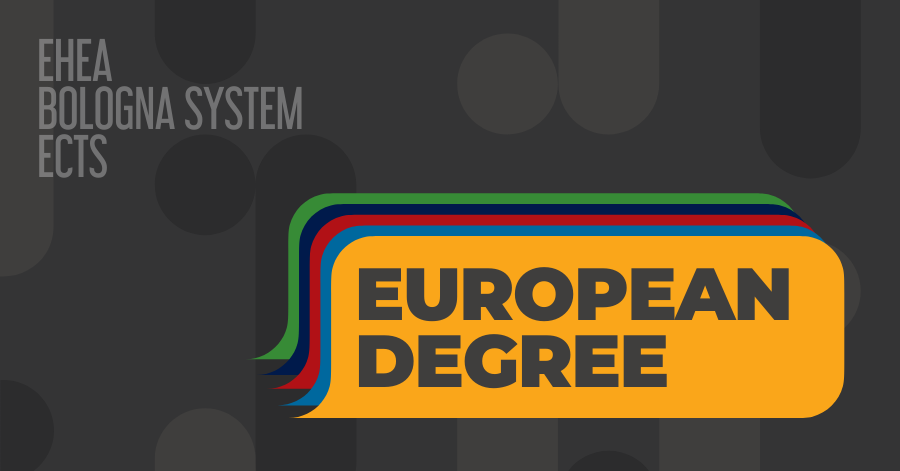We often get questions about whether a degree from Europe will be recognised internationally. In this article we collected the most important information about the European higher education system.
The Bologna Process seeks to bring more coherence to higher education systems across Europe. It is a key to building the necessary trust for successful learning mobility and the mutual recognition of study periods and qualifications earned abroad. Enhancing the quality and relevance of learning and teaching is also a core mission of the Bologna Process.
It established the European Higher Education Area (EHEA) to facilitate student and staff mobility, to make higher education more inclusive and accessible, and to make higher education in Europe more attractive and competitive worldwide.
As part of the EHEA, all participating countries agreed to:
- introduce a three-cycle higher education system consisting of bachelor's, master's and doctoral studies
- ensure the mutual recognition of qualifications and learning periods abroad completed at other universities
- implement a system of quality assurance, to strengthen the quality and relevance of learning and teaching
Each country that is part of the Bologna Process has its own individual higher education system – but all are part of the EHEA system which helps ensure that higher education systems across Europe are compatible - and that students, researchers and academics in Europe can collaborate and study or work abroad more easily. Qualifications across Europe are comparable through the European Qualifications Framework.
The three-cycle higher education system:
Bachelor’s degree
- Most full-time Bachelor's study programmes in Europe last 3 or 4 years (this will be longer if you study part-time)
- To do a Bachelor’s degree, you usually need some school qualifications first – this varies so check the entry requirements for your chosen study programme
- Bachelor’s degrees are highly regarded by employers. They are a great way to gain vital skills and knowledge to help you develop your career.
Master’s degree
- Most full-time Master's study programmes in Europe last 1 or 2 years (this will be longer if you study part-time)
- To do a Master’s degree, you usually need a Bachelor’s degree or other undergraduate qualification first
- Master’s degrees are highly regarded by employers. They are a great way to gain deeper or additional skills and knowledge to help you develop your career. In particular, they may also help you gain professional status – for example if you wish to become chartered in your profession.
Doctorate/PhD
- Most full-time doctorates in Europe last around 3 or 4 years (this will be longer if you study part-time)
- To do a doctorate, you usually need a Bachelor’s degree and a Master’s degree first
- Doctorates are ideal for people with a passion for research and discovery. They are especially useful if you want to work in academia, become a specialist in a particular field, or be an industry researcher.
- Doctorates usually involve a lot of independent study and research, specialised in one particular subject. You may attend some classes, but usually you carry out your own independent research, under the guidance of your supervisor.
Some additional information:
There are 1000s of universities, research institutes and higher education institutions across Europe.
There are 24 official languages in the European Union… but most countries across Europe offer study programmes taught in English and other languages too.
Start dates vary across Europe, but the academic year typically begins in September or October and finishes in June. Some study programmes also offer January/February start dates too.
Source: https://education.ec.europa.eu/



